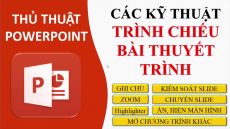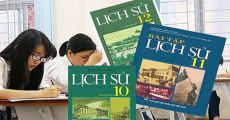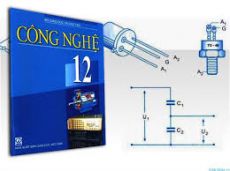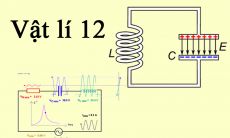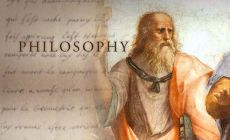Đề thi giữa HK1 môn Tiếng Anh 9 năm 2023 - 2024
Trường THCS Võ Trường Toản
-
Mark the letter A, B, C, or D on your answer sheet to indicate the word that differs from the other three in the position of primary stress in each of the following questions.
Câu 1:
A. legal
B. diverse
C. polite
D. complete
-
Câu 2:
A. interview
B. compliment
C. sacrifice
D. represent
-
Mark the letter A, B, C, or D on your answer sheet to indicate the word whose underlined part differs from the other three in pronunciation in each of the following questions.
Câu 3:
A. mood
B. flood
C. spoon
D. moon
-
Câu 4:
A. listens
B. reviews
C. protects
D. enjoys
-
Mark the letter A, B, C, or D on your answer sheet to indicate the correct answer to each of the following questions.
Câu 5:
If he were younger, he ______ a professional running competition now.
A. will join
B. had joined
C. would have joined
D. would join
-
Câu 6:
The children ______ to bed before their parents came home from work.
A. were all going
B. had all gone
C. had all been going
D. have all gone
-
Câu 7:
Linda refused ______ in the musical performance because she was sick.
A. to participate
B. participate
C. participating
D. to participating
-
Câu 8:
There has been little rain in this area for months, ______?
A. has it
B. has there
C. hasn’t it
D. hasn’t there
-
Câu 9:
David was deported on account of his expired visa. He ______ it renewed.
A. must have had
B. should have had
C. needn’t have had
D. mightn’t have had
-
Câu 10:
The proposal ______ by the environmentalists to grow more trees has received approval from the council.
A. which suggested
B. be suggested
C. suggested
D. was suggested
-
Câu 11:
Project-based learning provides wonderful opportunities for students to develop their ______.
A. creative
B. creativity
C. create
D. creatively
-
Câu 12:
Violent films may have a negative ______ on children.
A. opinion
B. influence
C. dependence
D. decision
-
Câu 13:
A good leader should not be conservative, but rather ______ to new ideas.
A. receptive
B. acceptable
C. permissive
D. applicable
-
Câu 14:
______ individuals are those who share the same hobbies, interests, or points of view.
A. Light-hearted
B. Like-minded
C. Even-handed
D. Open-minded
-
Câu 15:
The child has no problem reciting the poem; he has ______ it to memory.
A. devoted
B. added
C. committed
D. admitted
-
Câu 16:
After several injuries and failures, things have eventually ______ for Todd when he reached the final round of the tournament.
A. looked up
B. gone on
C. taken up
D. turned on
-
Mark the letter A, B, C, or D on your answer sheet to indicate the word(s) CLOSEST in meaning to the underlined word(s) in each of the following questions.
Câu 17:
The first few days at university can be very daunting, but with determination and positive attitude, freshmen will soon fit in with the new environment.
A. interesting
B. memorable
C. serious
D. depressing
-
Câu 18:
Deforestation may seriously jeopardize the habitat of many species in the local area.
A. do harm to
B. set fire to
C. give rise to
D. make way for
-
Mark the letter A, B, C, or D on your answer sheet to indicate the word(s) OPPOSITE in meaning to the underlined word(s) in each of the following questions.
Câu 19:
In this writing test, candidates will not be penalized for minor mechanical mistakes.
A. punished
B. rewarded
C. motivated
D. discouraged
-
Câu 20:
After their long-standing conflict had been resolved, the two families decided to bury the hatchet.
A. become enemies
B. become friends
C. give up weapons
D. reach an agreement
-
Mark the letter A, B, C, or D on your answer sheet to indicate the sentence that best completes each of the following exchanges.
Câu 21:
John and Mary are talking about what to do after class.
John: “______”
Mary: “Yes, I’d love to.”
A. Do you often have time for a drink after class?
B. Would you like to have a drink after class?
C. Do you often go out for a drink after class?
D. Would you like tea or coffee after class?
-
Câu 22:
Paul and Daisy are discussing life in the future.
Paul: “I believe space travel will become more affordable for many people in the future.”
Daisy: “______”
A. It doesn’t matter at all.
B. There’s no doubt about that.
C. It is very kind of you to say so.
D. I am sorry to hear that.
-
Read the following passage and mark the letter A, B, C, or D on your answer sheet to indicate the correct word or phrase that best fits each of the numbered blanks from 23 to 27.
GOOD FRIENDS
Psychologists have long known that having a set of cherished companions is crucial to mental well-being. A recent study by Australian investigators concluded that our friends even help to (23) ______ our lives. The study concentrated (24) ______ the social environment, general health, and lifestyle of 1,477 persons older than 70 years. The participants were asked how much contact they had with friends, children, relatives and acquaintances. Researchers were surprised to learn that friendships increased life (25) ______ to a far greater extent than frequent contact with children and other relatives. This benefit held true even after these friends had moved away to another city and was independent of factors such as socioeconomic status, health, and way of life. According to scientists, the ability to have relationships with people to (26) ______ one is important has a positive effect on physical and mental health. Stress and tendency towards depression are reduced, and behaviours that are damaging to health, such as smoking and drinking, occur less frequently. (27) _______, our support networks, in times Trang 3/6 - Mã đề thi 001 of calamity in particular, can raise our moods and feelings of self-worth and offer helpful strategies for dealing with difficult personal challenges.
(Source: Academic Vocabulary in Use by Michael McCarthy and Felicity O’Dell)
Câu 23:
A. prolong
B. lengthen
C. stretch
D. expand
-
Câu 24:
A. in
B. with
C. on
D. at
-
Câu 25:
A. expectation
B. insurance
C. expectancy
D. assurance
-
Câu 26:
A. who
B. whom
C. what
D. that
-
Câu 27:
A. Otherwise
B. For example
C. Moreover
D. However
-
Read the following passage and mark the letter A, B, C, or D on your answer sheet to indicate the correct answer to each of the questions from 28 to 34.
We get great pleasure from reading. The more advanced a man is, the greater delight he will find in reading. The ordinary man may think that subjects like philosophy or science are very difficult and that if philosophers and scientists read these subjects, it is not for pleasure. But this is not true. The mathematician finds the same pleasure in his mathematics as the school boy in an adventure story. For both, it is a play of the imagination, a mental recreation and exercise. The pleasure derived from this activity is common to all kinds of reading. But different types of books give us different types of pleasure. First in order of popularity is novel-reading. Novels contain pictures of imaginary people in imaginary situations, and give us an opportunity of escaping into a new world very much like our world and yet different from it. Here we seem to live a new life, and the experience of this new life gives us a thrill of pleasure. Next in order of popularity are travel books, biographies and memoirs. These tell us tales of places we have not seen and of great men in whom we are interested. Some of these books are as wonderful as novels, and they have an added value that they are true. Such books give us knowledge, and we also find immense pleasure in knowing details of lands we have not seen and of great men we have only heard of. Reading is one of the greatest enjoyments of life. To book-lovers, nothing is more fascinating than a favorite book. And, the ordinary educated man who is interested and absorbed in his daily occupation wants to occasionally escape from his drudgery into the wonderland of books for recreation and refreshment.
(Source: http://www.importantindia.com)
Câu 28:
What does the passage mainly discuss?
A. Different types of books
B. Different kinds of reading
C. Reading as an exercise for the brain
D. Reading as a pleasurable activity
-
Câu 29:
According to paragraph 1, which of the following is NOT true?
A. Ordinary people may think that philosophy and science are difficult.
B. Reading about mathematics is mentally entertaining for a mathematician.
C. Philosophers and scientists do not read for pleasure.
D. A more advanced person takes greater pleasure in reading.
-
Câu 30:
The word “derived” in paragraph 2 is closest in meaning to ______.
A. differed
B. established
C. bought
D. obtained
-
Câu 31:
The word “it” in paragraph 2 refers to ______.
A. a new life
B. our world
C. an opportunity
D. a thrill of pleasure
-
Câu 32:
The word “immense” in paragraph 3 is closest in meaning to ______.
A. great
B. limited
C. personal
D. controlled
-
Câu 33:
According to the passage, travel books, biographies and memoirs ______.
A. are wonderful novels
B. tell stories of well-known places
C. are less popular than novels
D. are more valuable than novels
-
Câu 34:
According to paragraph 4, which of the following is the most fascinating to booklovers?
A. A daily occupation
B. An ordinary educated man
C. The wonderland
D. A favorite book
-
Mark the letter A, B, C, or D on your answer sheet to indicate the underlined part that needs correction in each of the following questions
Câu 35:
Every member (A) of the class were (B) invited to (C) the party by the form teacher (D).
A. member
B. were
C. to
D. teacher
-
Câu 36:
Historically (A), it was the 3rd Asian Games (B) in Japan that (C) tennis, volleyball, table tennis and hockey were (D) added.
A. Historically
B. was the 3rd Asian Games
C. that
D. were
-
Mark the letter A, B, C, or D on your answer sheet to indicate the sentence that is closest in meaning to each of the following questions.
Câu 37:
Harry no longer smokes a lot.
A. Harry now smokes a lot.
B. Harry used to smoke a lot.
C. Harry didn’t use to smoke a lot.
D. Harry rarely smoked a lot.
-
Câu 38:
“I’ll call you as soon as I arrive at the airport,” he said to me.
A. He objected to calling me as soon as he arrived at the airport.
B. He promised to call me as soon as he arrived at the airport.
C. He denied calling me as soon as he arrived at the airport.
D. He reminded me to call him as soon as he arrived at the airport.
-
Mark the letter A, B, C, or D on your answer sheet to indicate the sentence that best combines each pair of sentences in the following questions.
Câu 39:
The young girl has great experience of nursing. She has worked as a hospital volunteer for years.
A. Before she worked as a hospital volunteer for years, the young girl has great experience of nursing.
B. Much as she has worked as a hospital volunteer for years, the young girl has great experience of nursing.
C. Having worked as a hospital volunteer for years, the young girl has great experience of nursing.
D. With great experience of nursing, the young girl has worked as a hospital volunteer for years.
-
Câu 40:
Peter told us about his leaving the school. He did it on his arrival at the meeting.
A. Only after his leaving the school did Peter inform us of his arrival at the meeting.
B. Not until Peter told us that he would leave the school did he arrive at the meeting.
C. Hardly had Peter informed us about his leaving the school when he arrived at the meeting.
D. No sooner had Peter arrived at the meeting than he told us about his leaving the school.







